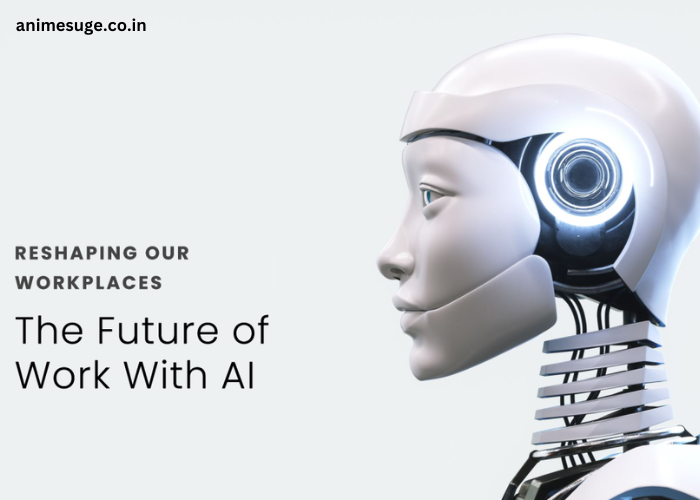Artificial Intelligence (AI) is no longer just a futuristic concept—it is a transformative force shaping industries, economies, and the very fabric of the workplace. As AI technologies mature, they are redefining how we work, enhancing productivity, and opening new avenues for growth. Here’s how AI innovations are revolutionizing the future of work.
1. Automation and Productivity
AI has become a key driver in automating repetitive tasks, allowing workers to focus on creative and strategic responsibilities. For instance:
- Robotic Process Automation (RPA): Software bots handle mundane tasks like data entry, invoice processing, and scheduling.
- Natural Language Processing (NLP): Tools like chatbots streamline customer service, while AI-driven transcription services improve accessibility.
- AI in Manufacturing: Autonomous robots now perform tasks with precision, reducing errors and increasing efficiency.
These advancements free up human talent to focus on higher-value activities, fostering innovation and strategic decision-making.
2. Reshaping Job Roles and Skills
AI is not just replacing tasks—it’s creating entirely new roles. As automation handles routine operations, demand rises for AI-specific expertise such as:
- Data Analysis and Interpretation: Translating AI-driven insights into actionable business strategies.
- AI System Training and Oversight: Ensuring algorithms remain ethical and accurate.
- AI Integration Specialists: Combining AI solutions with existing workflows.
Moreover, soft skills such as adaptability, critical thinking, and emotional intelligence are becoming more important than ever, as they complement the technical skills needed in an AI-driven workplace.
3. Enhancing Decision-Making
AI’s ability to process vast amounts of data enables more informed and quicker decision-making across industries:
- Predictive Analytics: AI forecasts trends, helping businesses anticipate customer needs, market shifts, and risks.
- Personalized Marketing: Machine learning algorithms analyze consumer behavior to tailor products and services.
- Healthcare Diagnosis: AI systems assist doctors by identifying patterns in medical data, leading to faster and more accurate diagnoses.
This augmentation ensures decisions are data-backed, reducing risks and boosting outcomes.
4. Flexibility and Remote Work
The rise of AI-powered tools has made remote work seamless and effective. Technologies like virtual assistants, collaborative platforms, and AI scheduling tools optimize workflows across time zones and geographies. Companies now leverage AI to monitor productivity, automate workflows, and ensure cybersecurity in distributed work environments.
5. Addressing Ethical Challenges
The integration of AI into the workplace brings ethical considerations:
- Job Displacement: While AI creates opportunities, it also automates roles, necessitating workforce reskilling.
- Bias in Algorithms: AI systems must be monitored to avoid perpetuating systemic biases.
- Data Privacy: With AI relying on massive datasets, organizations must ensure compliance with privacy regulations.
Developing ethical AI practices and policies will be crucial as businesses navigate these challenges.
6. Industry-Specific Transformations
AI is tailoring solutions to industry-specific challenges:
- Finance: Fraud detection and algorithmic trading.
- Healthcare: Drug discovery and personalized medicine.
- Retail: Inventory management and virtual shopping assistants.
- Education: AI tutors and adaptive learning platforms.
These industry-specific applications highlight AI’s potential to revolutionize traditional processes.
Preparing for the AI-Driven Future
As AI reshapes the workplace, employees and organizations must adapt:
- Continuous Learning: Upskilling and reskilling will be vital. Online courses, certifications, and AI bootcamps can bridge knowledge gaps.
- Collaboration with AI: Workers should focus on leveraging AI as a tool rather than fearing its impact.
- Policy and Governance: Governments and businesses must work together to create fair, inclusive, and transparent AI practices.
By embracing these strategies, the workforce can transition smoothly into an AI-enhanced era.
Conclusion
AI is more than a trend—it’s a transformative force redefining the future of work. From automation and innovation to ethical challenges and new career paths, AI’s impact is profound and far-reaching. As we stand on the brink of this revolution, embracing AI’s potential while addressing its challenges will ensure a future where technology and humanity thrive together.
